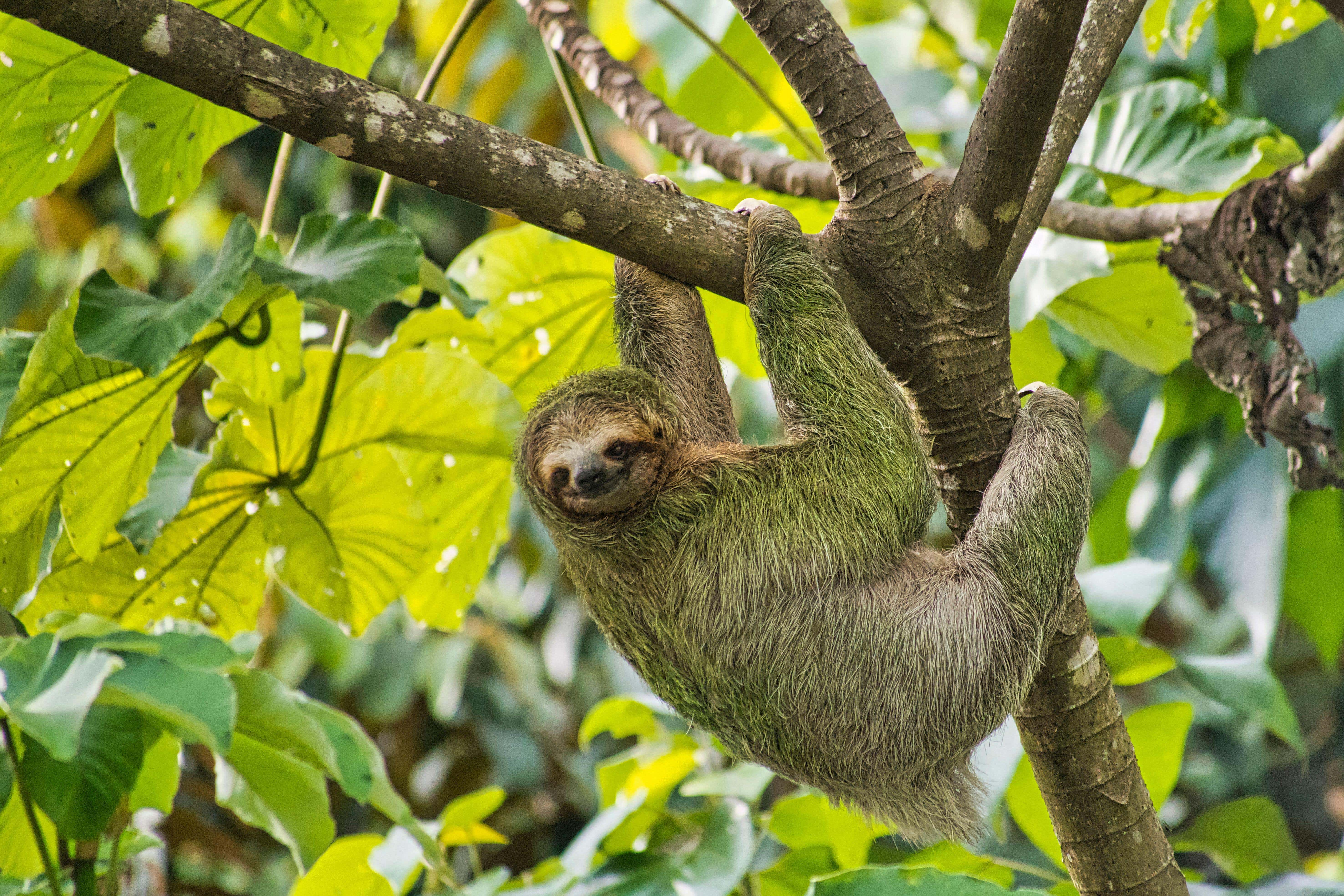Why sloths are headed for extinction if the planet continues to warm
Study calls for immediate conservation efforts to focused on sloth populations, with its lead author warning that ‘if we don’t take urgent action to protect these species, we risk losing them forever’. Stuti Mishra reports

Sloths, the slow-moving inhabitants of Central and South American rainforests, could face extinction by the end of the century due to rising temperatures caused by the climate crisis, a new study has found.
Scientists warned that the unique metabolic limitations of sloths, especially in mountainous regions, could make their survival unlikely as global temperatures continue to rise.
Some sloth species are already critically endangered as their habitats in Central and South American regions like the Amazon continue to be encroached upon. The slow movements and highly specialised tree-dwelling lifestyle of the tropical mammal make it difficult for them to adapt to rapid habitat changes.
Researchers from the Sloth Conservation Society examined how two-fingered sloths, Choloepus hoffmanni, respond to changing temperatures to understand the impact of the climate crisis.
By measuring the oxygen consumption and core body temperature of sloths under different climate conditions, the research team found that high-altitude sloths are especially vulnerable to future temperature increases.

"Sloths are inherently limited by their slow metabolism and unique inability to regulate body temperature effectively, unlike most mammals," Dr Rebecca Cliffe, lead author of the study from the Sloth Conservation Foundation, said.
"Our research shows that sloths, particularly in high-altitude regions, may not be able to survive the significant increases in temperature forecast for 2100," she said.
Sloths living in lowland regions are better adapted to higher temperatures and can even initiate a survival mechanism called metabolic depression when temperatures exceed their comfort zone, the findings, published in the journal PeerJ Life & Environment, showed.
However, sloths in high-altitude areas face a sharp increase in their resting metabolic rate as temperatures rise, leaving them with fewer options to cope with the heat.
According to the study, sloths from highland regions experience a significant rise in metabolic activity when temperatures climb above 32C. This increase in energy demand is troubling because sloths already have slow digestion rates – up to 24 times slower than similar-sized herbivores – making it difficult for them to meet their energy needs.

"High-altitude sloths are in a particularly precarious position," Dr Cliffe added.
"Their limited ability to migrate to cooler areas and the lack of metabolic flexibility could push these populations toward extinction."
The research suggests that by 2100, with temperatures expected to rise between 2C to 6C in sloth habitats, high-altitude sloths may face a severe metabolic burden that they cannot overcome.
While lowland sloths might survive by shifting to higher altitudes, those already living at higher elevations are trapped with no geographic room to escape the heat.
The study calls for urgent conservation efforts to protect sloth populations, particularly those in high-altitude regions.
Researchers say more studies are needed into adaptive strategies and the development of conservation policies that can help mitigate the risks posed by the climate crisis.
"Our work highlights the vulnerability of sloths to a warming world," Dr Cliffe said.
"If we don’t take urgent action to protect these species, we risk losing them forever."






Join our commenting forum
Join thought-provoking conversations, follow other Independent readers and see their replies
Comments